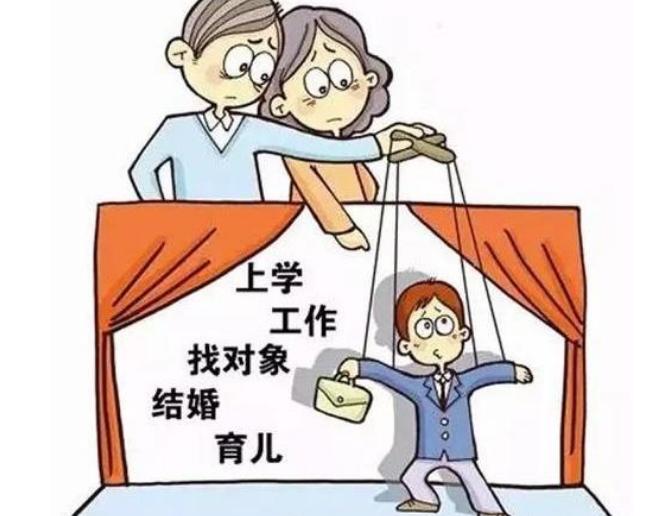The previous article shared the following scenarios:
What would you do if you take a lunch break in your room at noon and the kids are going back and forth outside in the living room and hallway, making you unable to sleep?
The child falls on the swing and falls on the rubber floor of the playground, and it is all right, but the child keeps crying, what will you do?
What would you do if your child proposed to earn pocket money through housework such as washing dishes and sweeping the floor?
Have you given your child punishments such as standing, wall-facing, etc.?
Now that everyone understands their own way of coping, let's see if we have fallen into the traditional education misunderstanding.

Traditional parenting myth one, controlling parents and laissez-faire parents.
Parents generally agree that there are only two ways to deal with bad behavior in children:
One is control, that is, through orders, accusations, punishments, bribes, etc., so that children's behavior conforms to their own will;
The other is laissez-faire, because they feel helpless, letting the child do whatever he wants, no matter what the demands they try to meet.
Let's take an example:
At noon you take a lunch break in your room, and the kids are outside in the living room and hallway. Footsteps running on the wooden floor make a "rattling" sound, mixed with their shouts and throwing things, which makes you who are preparing to take a nap unbearable and angry.
What do you do then?
Controlling parents will jump out of bed, go out of the room, and shout, "Stop me, be quiet!" They are all driven crazy by you, so noisy at noon, and let no one sleep. If you make trouble again, I won't take you out to play in the afternoon. "
Commands and threats are the most common methods used by controlling parents.
Laissez-faire parents, faced with the same situation, will only shake their heads helplessly and then endure all this and let their children make a fuss.
For this case, we can try to reflect:
Are there two types of parents who communicate with their children in a respectful way?
Although the laissez-faire parent does not shout or command, he can feel his dissatisfaction with his child's behavior and his incomprehension of his child.
Two types of parents, are there clear expressions of their feelings and needs? Does the child have a clear understanding of their parents' feelings and needs?
Controlling parents have accusations and threats, but do not express their need for a "quiet nap environment". The child has no information other than to receive the anger of the parents.
Neither controlling parents nor laissez-faire parents can teach children how to respect others and how to express their feelings and needs.
Both controlling parents and laissez-faire parents can deal with ways in which children are unable to express their emotions in an appropriate way, and neither parent has taught their children to take responsibility for their actions.
Whether it is a controlling parent or a laissez-faire parent, the educational results achieved are usually unsatisfactory.
Children who grow up in a controlled environment, because of long-term repression, crave every opportunity to indulge. When such opportunities arise — usually as teenagers — they don't hesitate to seize them and exploit them recklessly.
Children who grow up in laissez-faire families lack constraints and rules and a sense of belonging. Because children can't find boundaries in their behavior, they will constantly try to find out, so they can't get a sense of belonging and security. They will encounter serious difficulties in conception and emotion.
The above is the sharing of parenting misunderstanding 1, the next we continue to share parenting misunderstanding 2 - belittling and denying children's feelings.